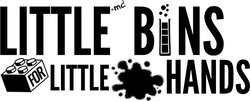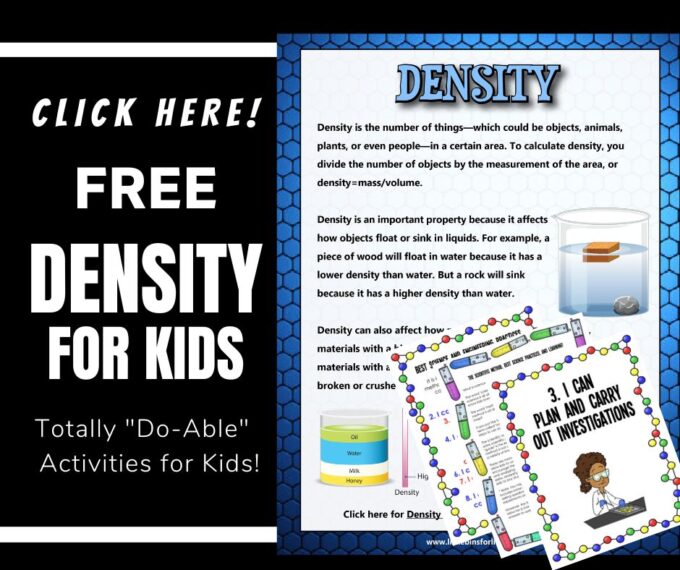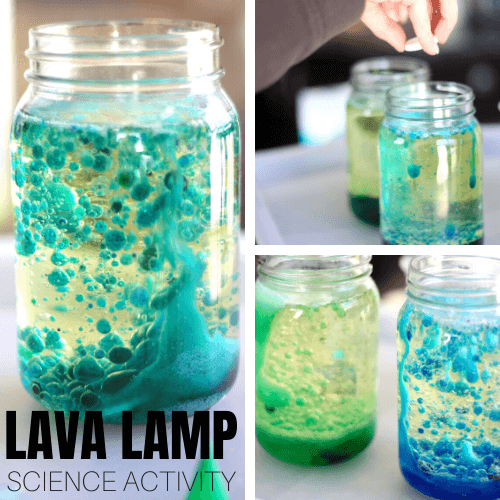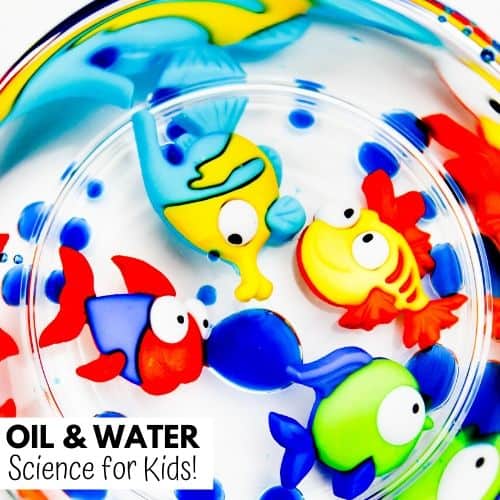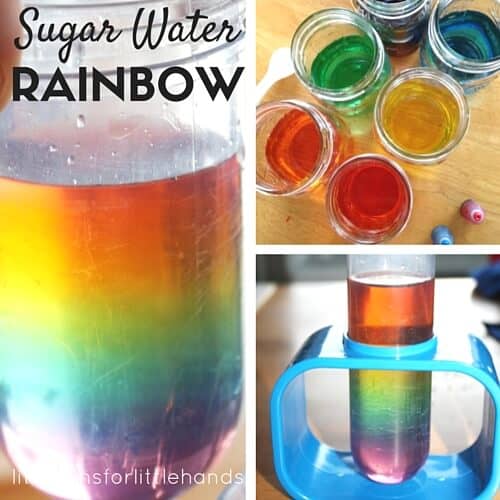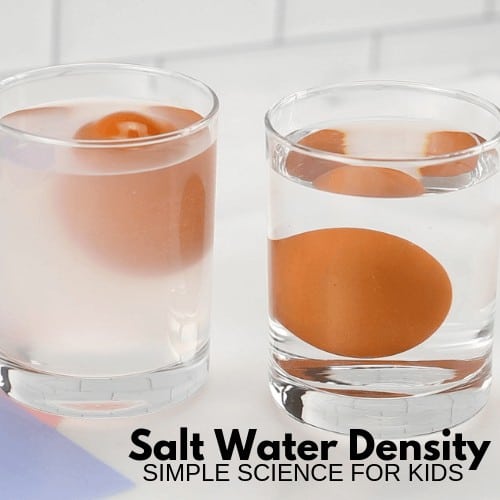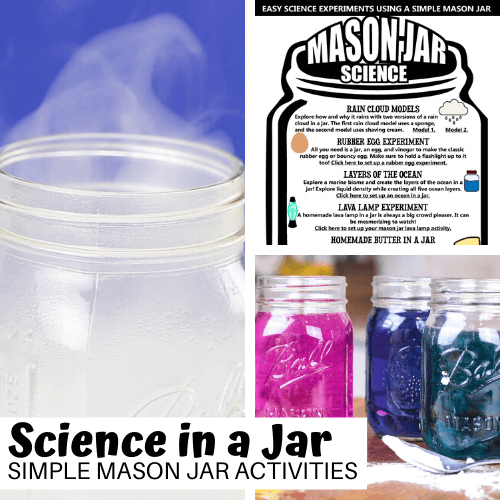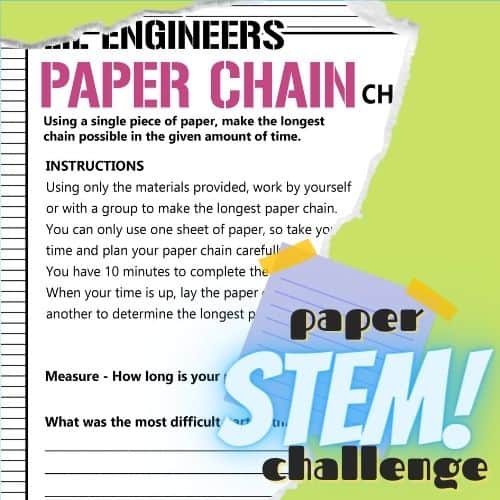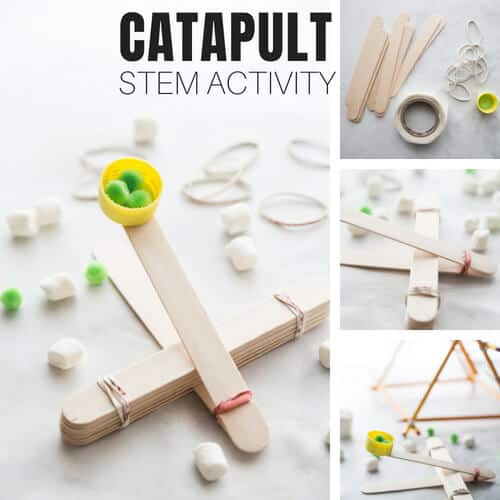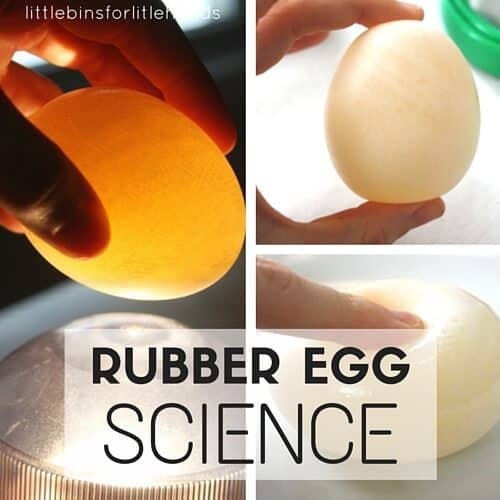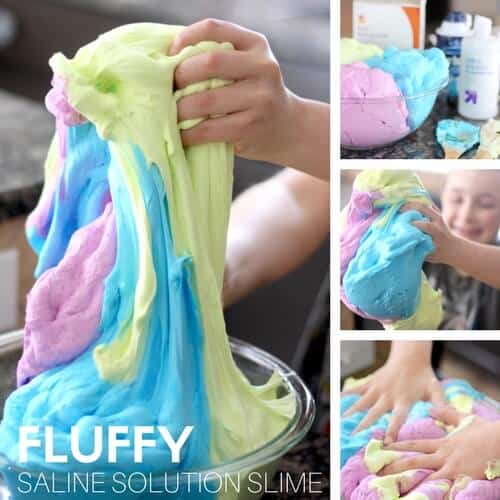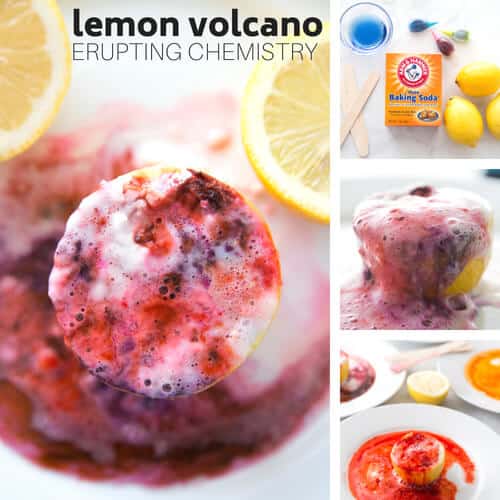What is density for kids? Density can be a hard concept for kids to get their heads around. But here we have a simple density definition and fun and hands-on density science experiments kids will love. Make a liquid density tower and explore the densities of liquids, investigate what happens to the density of water when you add salt or sugar, and more. Easy science project ideas for all ages of kids!
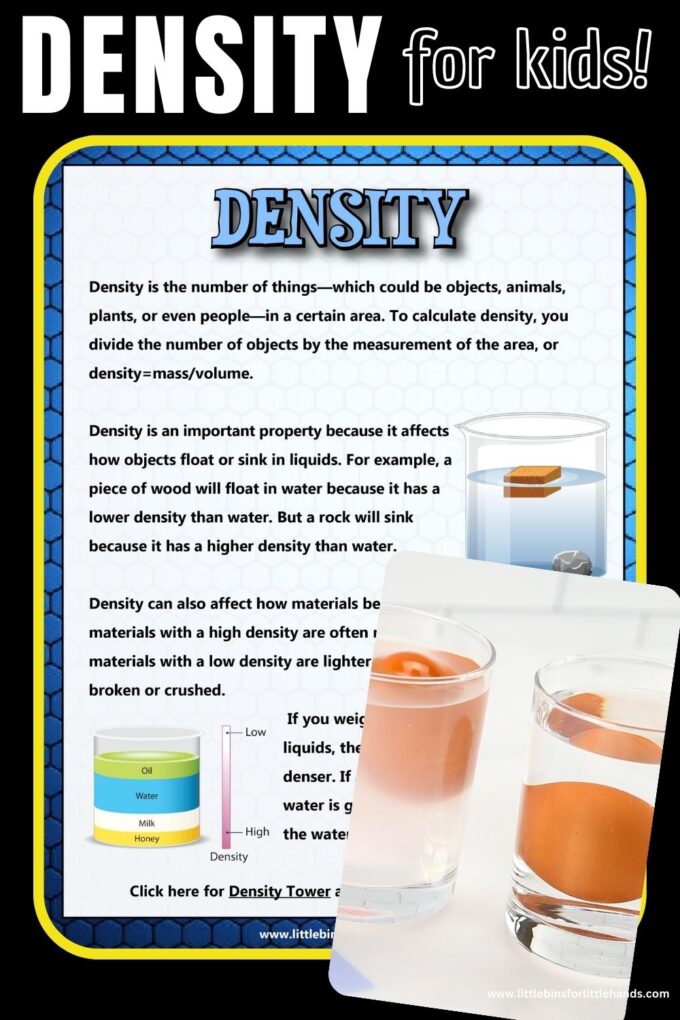
Physics For Kids
Let’s keep it basic for our junior scientists. Physics is all about energy and matter and the relationship they share with one another. Like all sciences, physics is about solving problems and figuring out why things do what they do. Kids are great for questioning everything!
In our physics activities, you will learn a little about static electricity, Newton’s 3 Laws of Motion, simple machines, buoyancy, density, and more! All with easy household supplies!
Encourage your kids to make predictions, discuss observations, and re-test their ideas if they don’t get the desired results the first time. Science always includes an element of mystery that kids naturally love to figure out!
Learn about density with one of these hands-on density experiments below and use our simple density definition for kids.
Density Defined For Kids
Density refers to the mass of a substance (the amount of matter in that substance) compared to its volume (how much space a substance takes up). Different liquids, solids, and gases will have different densities.
For example, a block of lead will weigh much more than an equal volume of wood, meaning the lead is denser than wood.
You can calculate density with this simple density formula.
Density = mass / volume
What Is Mass?
Mass is the amount of matter (consisting of atoms) that make up a substance. What is the difference between mass and weight?
Weight depends on the force of gravity, so the weight of an object can change depending on where it’s measured. For example, a person’s weight will be much less on the moon, which has 1/6th the earth’s gravity.
Mass is a property of matter. The mass of an object does not change depending on where it is. Learn more about mass vs weight.
Density In Science
Density in science is an essential property because it affects how objects float or sink in water. For example, a piece of wood will float in water because it has a lower density than water. But a rock will sink in water because it has a higher density than water.
If you measure the mass of different liquids, the liquid with a greater mass for the same volume will be denser. If a liquid that is less dense than water is gently added to the water’s surface, it will float on the water. You can see this in our density tower experiment!
The Density Of Water
What is the density of water? The average density of water is calculated as 1 gram per milliliter (1 g/ml) or 1g/cm3.
Several factors affect the density of water, whether it’s freshwater or tap water, salt water, and the temperature of the water. Water is densest at 3.98°C and least dense at 0°C (freezing point). Adding things to water changes its density because those substances have their own density.
Several fun density experiments below explore some of these factors and how they affect water density.
Want to learn more about the density of the seawater in the ocean? Check out our layers of the ocean activity.
Turn It Into A Science Fair Project
Science projects are an excellent tool for older kiddos to show what they know about science! Plus, they can be used in all sorts of environments, including classrooms, homeschools, and groups.
Kids can take everything they have learned about using the scientific method, stating a hypothesis, choosing variables, and analyzing and presenting data.
Want to turn one of these density experiments into an awesome science fair project? Check out these helpful resources.
More Fun Examples Of Density
Wouldn’t it be fun to stumble across a gold nugget in the ground, because even a small amount of gold is worth a lot! Gold weighs approximately 19 times more than the same amount of water. The density of gold is 19.3g/cm3 .
LOOK: Parts of an Atom
In comparison, the density of Aluminium is 2.7g/cm3 , which makes it a great metal to use for things that you want to be light. For example; cans, foils, kitchen utensils, window frames, and airplane parts.
More examples are copper – 8.92g/cm3 , lead – 11.34g/cm3 , and mercury – 13.53g/cm3 .
Get Your Free Printable Density Information Sheet!
Download this free information sheet on density and our Best Science Practices mini pack to start your own investigations with density!
List Of Density Experiments
Below you will find great examples of density experiments. All of these science experiments are quick to set up and easy to do at home or in the classroom.
Liquid Density Experiment
Explore how some liquids are denser than other liquids with this easy-to-set-up, 4-layer density tower experiment. Grab all the supplies you need from your kitchen cupboards. Get kids to predict which liquid they think will be more dense!
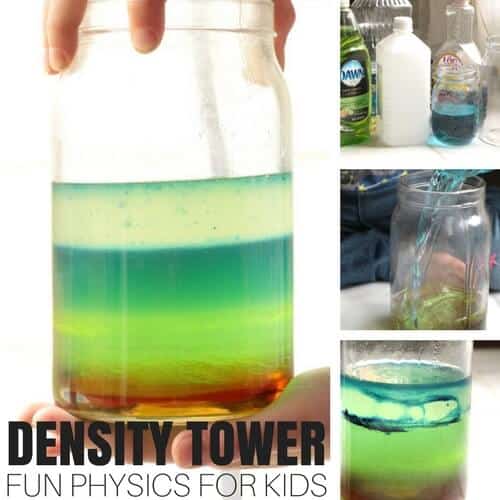
Floating Orange
Investigate whether an orange floats or sinks in water, and even add in the scientific method. Learn about buoyancy and density with a simple ingredient from the kitchen, an orange.
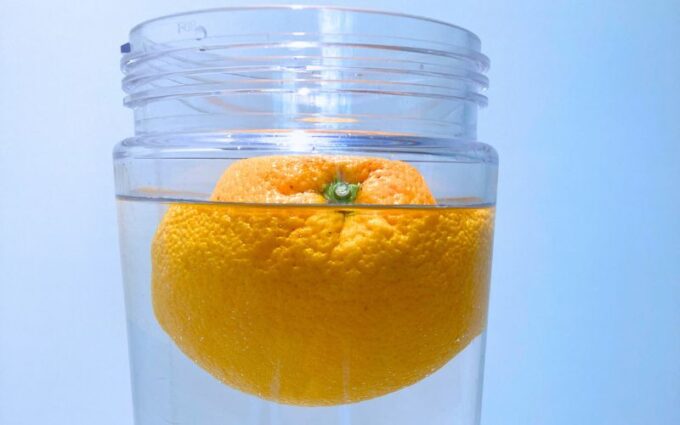
Halloween Density Experiment
Here is a spooky twist on our liquid density science experiment above. We even have a fun Valentine density experiment and a Christmas one too!
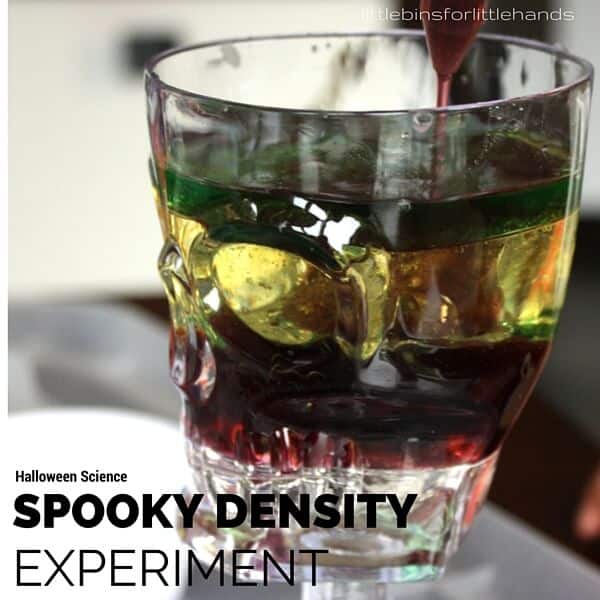
Lava Lamp Experiment
Compare the density of two liquids, oil and water in this homemade lava lamp. Add in a fun chemical reaction with Alka Selzter tablets, that will create lots of bubbling action.
Oil and Water
Look at this playful and colorful way for younger kids to explore oil and water, along with the concept of density.
Rainbow Water Experiment
Experiment with adding sugar to water to see if it increases the density of water. You will end up with colorful layers like a rainbow in a jar.
Salt Water Density
How does salt affect the density of water? Can you float an egg in salt water? Make up a salt water solution and find out!
Sink or Float Experiment
This is an easy-density experiment for younger kids and older ones, too! Why do some objects float and others sink? It’s all to do with density!
More Helpful Science Resources
Here are a few resources to help you introduce science more effectively to your kiddos or students and feel confident when presenting materials. You’ll find helpful free printables throughout.
- Best Science Practices (as it relates to the scientific method)
- Science Vocabulary
- 8 Science Books for Kids
- What Is A Scientist
- Science Supplies List
- Science Tools for Kids
Printable Science Projects For Kids
If you’re looking to grab all of the printable science projects in one convenient place, plus exclusive worksheets, our Science Project Pack is what you need!
